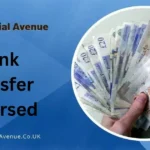Cashing a cheque used to be a straightforward task – you would simply visit your bank branch, deposit the cheque and withdraw the cash. However, with bank branch closures now commonplace and the UK moving towards digital transactions, the traditional cheque clearing process can feel outdated. So if you want to learn how to cash a cheque, this article is for you.
Thankfully, there are still numerous options for cashing a cheque quickly, affordably and securely in 2024 Britain. This guide will explore the various methods available, whether you have a bank account or not.
Key Takeaways: Cashing a Cheque in the UK
Cashing a cheque in Britain may feel outdated and cumbersome these days. However, with the various options above, getting paid quickly and securely is still achievable whether you have a bank account or not.
To summarise, here are the key methods covered:
- Banks: Fast, free for account holders, funds in 1-2 business days.
- Post Office: Useful for unbanked, £3+ fees, up to £500 cheques.
- Payday Lenders: Instant but very expensive (10-15% fees).
- Cheque Cashing Shops: Instant, 4-6% fees, extensive ID required.
What Is Cheque Cashing?
Cheque cashing is the process of converting a cheque into physical cash or depositing it directly into your bank account. Rather than waiting for a cheque to clear, cheque cashing services essentially advance you the money, for a fee. This provides immediate access to funds.
There are various types of businesses that offer cheque cashing services in the UK, including:
- Banks and credit unions
- Post offices
- Payday lenders
- Dedicated cheque cashing providers
The fees, requirements, risks and speed of access to money can vary greatly depending on where you choose to cash your cheque.
Learn: Is eBay Safe? These Scams Can Be Costly!
Types of Cheques You Can Cash
You can cash various types of cheques in the UK, including:
- Personal cheques – Written from one individual’s bank account to another.
- Business cheques – Issued by a UK company.
- Bank drafts / cashier’s cheques – Guaranteed funds from the issuing bank.
- Government cheques – Including tax rebates, benefits, pensions and more.
As long as the cheque is valid, legitimate and from a reputable source, most lenders or the Post Office will be able to cash it for you – for a fee of course.
Discover Disadvantages of Using A Debit Card Abroad
Cashing Your Cheque Through Your Bank
Using your own bank to cash a cheque remains the fastest, easiest and cheapest option for most people. Here’s what you need to know:
- Fees: The majority of UK banks allow personal customers to cash cheques free of charge. However, watch out for overdraft fees if the cheque bounces.
- Speed: Funds are usually available within 1-2 business days when you cash a cheque through your bank. This is known as the traditional clearance process.
- Requirements: You generally need to bank with the provider and have a current account or savings account set up already.
- Options: You can cash cheques at local branches, via ATMs, banking apps or online.
For example, here is the cheque deposit process with a major bank like Barclays:
- Branches – Cash cheques up to £500. Larger cheques may require an appointment.
- ATMs – Insert cheque, confirm amount and the funds will be deposited to your account.
- Mobile App – Use your phone camera to scan, confirm and submit the cheque.
- Online Banking – Post cheques via mail. Amount will show in 1-2 days once received.
Cashing a cheque through your existing bank account is typically the most convenient way. However, it does rely on you already being set up with them.
Cashing Cheques at the Post Office
If you need to cash a cheque but don’t have a bank account, the Post Office offers a handy alternative.
- Over 11,500 Post Office branches across the UK accept cheque deposits.
- You can cash cheques worth up to £500. Larger cheques may be accepted on a case-by-case basis.
- Photo ID and proof of address is required to cash most cheques.
- The Post Office charges a 1.5% fee per cheque, with a minimum fee of £3.
For example, cashing a £200 cheque at the Post Office would incur a £3 fee, while cashing a £500 cheque would incur a £7.50 fee.
So while slightly more expensive than typical bank fees, the Post Office network offers reasonable cheque cashing convenience for those unable to open a bank account. Just be aware that funds still take 1-2 business days to clear.
Is Chase Bank Ethical? Learn in this post.
Payday Lenders Offer Instant Access (At a Cost)
If you need emergency cash from a cheque, payday lenders like Provident and other cheque cashing services can provide funds instantly. However, their fees are exorbitantly higher, with rates often between 10-15%.
Let’s compare the cost of cashing a £750 cheque:
| Cheque Cashing Provider | Fee |
|---|---|
| Local Post Office | £11.25 (1.5%) |
| High Street Bank | £0 |
| Payday Lender | £112.50 (15%) |
As you can see, the instant access comes at a major cost. Payday loans essentially provide cash against the value of your cheque until it clears officially with your bank after 1-2 business days.
Always compare interest rates and consider alternatives before using payday lenders. Their immediate cheque cashing convenience can easily result in a debt spiral.
Learn more: Can You Get Euros from the Post Office Without Ordering?
Professional Cheque Cashing Shops
For those unable to open traditional UK bank accounts or access the Post Office, professional cheque cashing services are another option.
There are hundreds of physical cheque cashing shops located across most major towns and cities in Britain. Some well known names include:
- Cash Converters
- Cash Generator
- The Money Shop
To cash a cheque, you’ll need to take it to a local provider along with extensive ID validation and proof of address. This is mandatory to comply with UK anti-money laundering laws.
Once approved, you’ll pay a cheque cashing fee of around 4-6%. Although still expensive, this is cheaper than most payday lenders.
For example, cashing a £250 cheque via The Money Shop would incur around a £10-£15 fee.
So while not as affordable as a bank, cheque cashing shops do offer more reasonable fees than payday loans along with instant access to funds.
Can I Cash a Cheque at the Post Office UK?
Yes, any local Post Office branch in the UK will cash cheques. The requirements are:
- Must show valid photo ID (driving licence / passport).
- Can cash cheques up to £500. Higher amounts may be accepted.
- A fee of 1.5% applies per cheque (minimum £3).
- Funds from cheques under £500 are usually available on the same day.
Even without a bank account, the Post Office provides reasonable cheque cashing services to consumers across Britain. Just be aware their fees are higher than typical bank rates.
Can I Cash a Cheque Instantly?
If you need immediate emergency access to funds from a cheque, payday lenders and some dedicated cheque cashing stores offer instant options.
However, their fees are extremely high, often between 10-15% of the cheque value. So cashing a £100 cheque instantly could cost you £15.
Unless urgently needed, it is advisable to go through your bank and wait the standard 1-2 business days for access to the money. This avoids excessive fees found with instant cheque cashing providers.
Final Words
Whenever possible, cash cheques via your own bank for the lowest fees and best consumer protections. But alternatives do exist for those without accounts.
As the UK moves further towards digital transactions, cheques will likely become less common over this decade. But they still have their place in 2024, with an estimated £2 billion worth cashed annually.
Hopefully this guide has shed light on the various providers, fees, risks and processes involved when cashing a cheque in the modern, digital age. Let us know if you have any other questions in the comments below!

Daniel, a seasoned professional with over 5 years of experience in banking, property, and finance, brings a wealth of expertise to the table. This authoritative blog is meticulously curated to provide you with the most up-to-date financial insights. Delving into the dynamic realms of banking and mortgages, Daniel’s passion for finances shines through every post.










